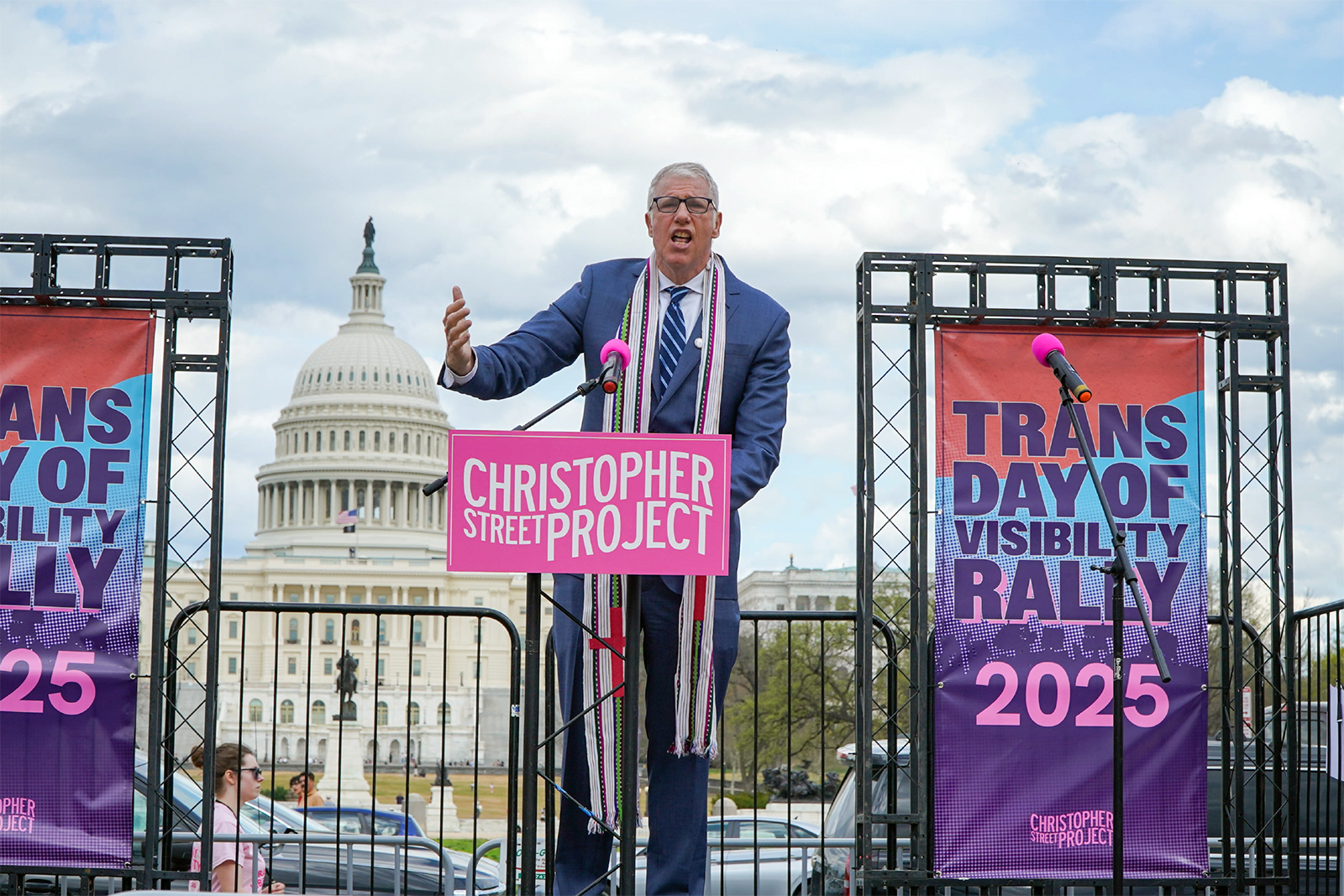
(RNS) — In the few weeks since the inauguration of President Donald Trump, there have been a distressing number of American institutions and corporations that have “obeyed in advance,” to borrow a phrase from the historian Timothy Snyder.
Target, Pepsi, Google and McDonald’s, to name just a few corporations, have agreed to halt efforts at increasing diversity and equity and inclusion. Paul Weiss and other law firms that sought to hold the line against the lawlessness of the first Trump administration have given in to the demands of Trump 2.0 with nary a whimper. Columbia and Harvard universities have thrown in the towel without a fight, making major alterations in their policies and faculties in the face of White House threats to their federal funding. In allowing their rights to be trampled, they are opening the way for the rights of far more vulnerable organizations and people to be trampled as well.
Yet one important constituency in American life continues to demonstrate moral clarity about the present danger, and it may surprise you: religious congregations, leaders and institutions. While some faith leaders have sanctified the cruelty and carelessness of the Trump administration, to the point of blessing the president in an Oval Office photo op, a growing number of religious communities are responding to the administration’s hostility to many of their core values and the threat the White House poses to religious groups (or any group) not in lockstep with its agenda.
This resistance to power began on the first full day of the administration, when an Episcopal bishop preaching from her own pulpit at the Washington National Cathedral made a respectful plea for mercy for the most vulnerable of Americans. She rightly refused to apologize for speaking out in a way that was true to the convictions of her faith.
In the weeks that followed, we’ve seen more attacks on religious leaders and institutions — and more of their steadfast refusal to yield to bullying and intimidation. When the president changed the rules that had prevented Immigration and Customs Enforcement from raiding sensitive spaces including houses of worship, the Quakers, Sikhs and Baptists filed a lawsuit, followed by similar efforts from other religious groups. When Vice President JD Vance absurdly accused the Catholic Church of helping the immigrant community only to fill the church’s own coffers, U.S. Catholic bishops held their ground. They rejected the vice president’s assertion as “just wrong.”
When Elon Musk promoted absurd accusations that Lutheran Social Services was engaged in “money laundering,” LSS didn’t fold in fear. It hit back, rejecting his assertions as false. Lutheran bishops of Wisconsin and Upper Michigan recently issued a sharp rebuttal to Trump’s executive order establishing a “Task Force to Eradicate Anti-Christian Bias,” saying: “We believe this executive order is a threat to the religious pluralism enshrined in the Constitution and does not actually protect Christians.”
After Target, Walmart and other companies abandoned their DEI programs in the face of Trump’s views, Black church congregations and Muslim groups have led an effective boycott effort. Jewish groups, including the Jewish Council for Public Affairs and T’ruah: The Rabbinic Call for Human Rights, have made clear that the administration’s approach to antisemitism harmfully undercuts civil liberties while only making Jewish Americans less safe.
It’s important to note that, as nonprofits, religious groups have far fewer resources and a smaller margin for error than the corporations or universities that have crumbled. Faith groups are nonetheless putting commitment to principle over concern for their bottom line (the vice president’s accusation notwithstanding). Even under repeated attacks, religious groups have refused to sacrifice their integrity at the golden altar of power and are courageously fighting back.
Religious leadership has often acted with courage at times of trauma and challenge in American history. In the face of the pernicious violence of racism, the Rev. Martin Luther King Jr. assembled religious leaders from across traditions to join the Black community to organize and speak out for civil rights. King wrote: “Courage is an inner resolution to go forward despite obstacles. Cowardice is submissive surrender to circumstances. Courage breeds creativity.”
That creativity is what we are seeing today. Religious leaders are showing up in Washington, in state capitols and in small towns, insisting that they will not bend to an agenda that degrades our society and harms our people. We are demanding that our elected officials answer for the attacks on Social Security, Medicare, SNAP and veterans services — as well as attacks on civil liberties and religious freedom. On Saturday (April 5), faith communities are among those mobilizing to participate in a major nationwide “Hands Off!” day of action in defense of democracy and a functional government.
The root word of courage is “cor” — Latin for heart. Spiritual communities are rooted in the love of the sacred as well as love of the neighbor. We follow the mandates of our respective faiths with a sense of a larger purpose of our lives than the material. Many of us are also guided by love of our country and our democracy, which we now see under attack from our own government. My deepest prayer is that religious communities will continue to show courage in the face of pressure and adversity, and that we can inspire the wider American people to do the same.
(The Rev. Paul Brandeis Raushenbush is president and CEO of Interfaith Alliance. The views expressed in this commentary do not necessarily reflect those of RNS.)
